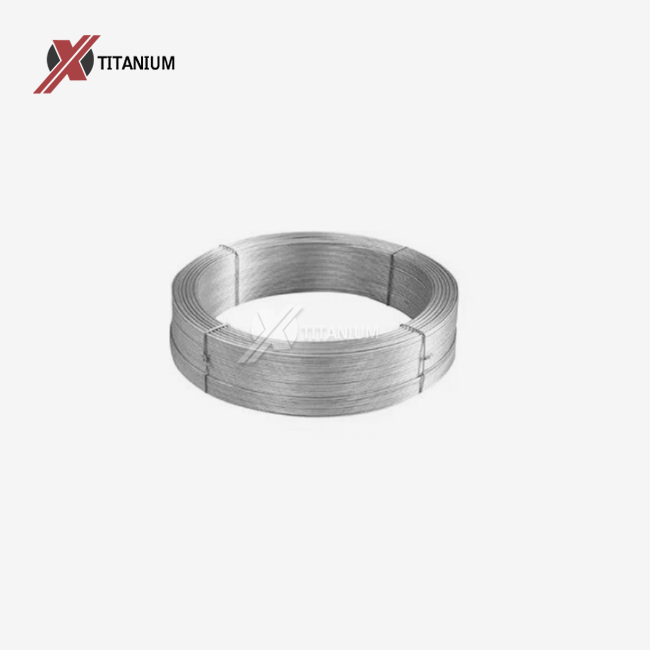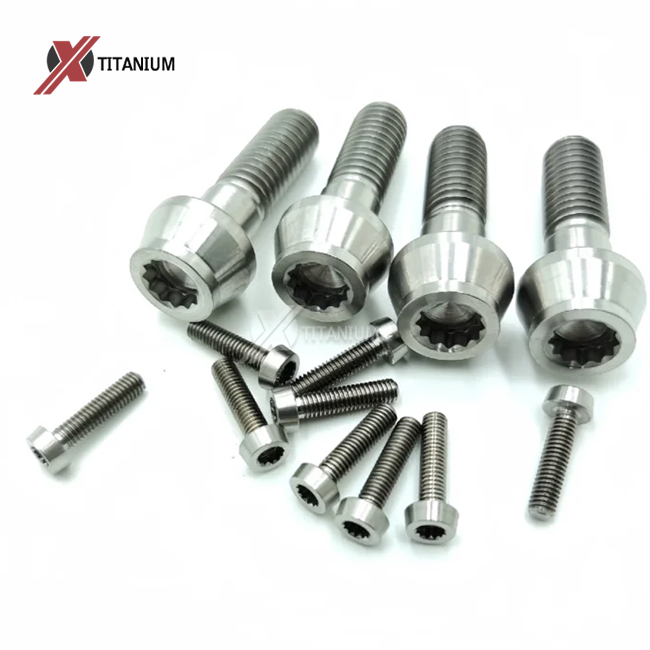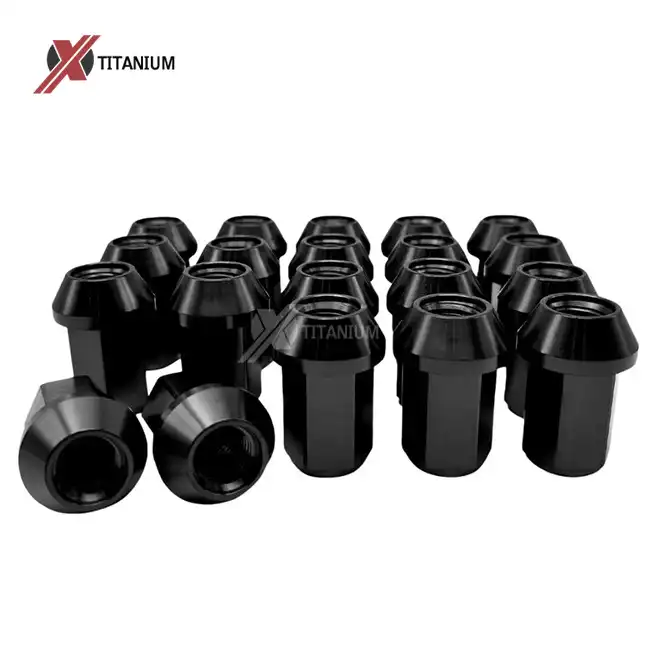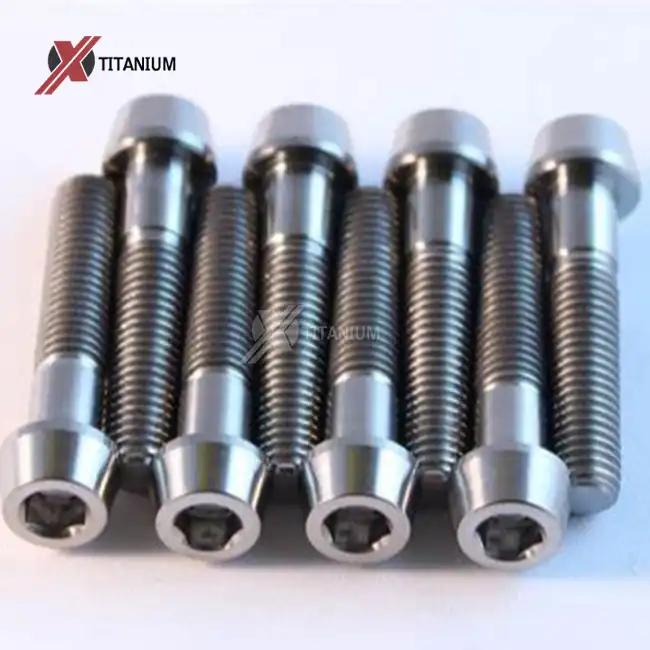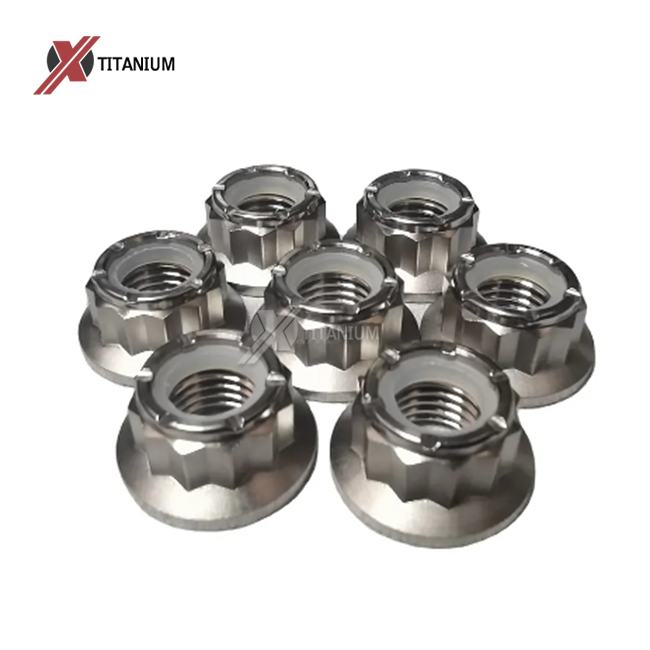Unmatched Corrosion Resistance: A Game-Changer for Chemical Processing
One of the primary reasons for the growing demand for pure titanium wire in the chemical industry is its exceptional corrosion resistance. This property makes it an invaluable material for various applications where exposure to harsh chemicals and corrosive environments is a constant challenge. The inherent ability of titanium to form a protective oxide layer on its surface provides a natural barrier against corrosion, ensuring longevity and reliability in chemical processing equipment.
In comparison to traditional materials like stainless steel or nickel alloys, pure titanium wire exhibits superior resistance to a wide range of chemicals, including chlorides, sulfuric acid, and organic compounds. This resistance translates to reduced maintenance costs, longer equipment lifespan, and improved safety in chemical plants. The use of pure titanium wire in critical components such as heat exchangers, reaction vessels, and piping systems has become increasingly common, as it allows for more efficient and reliable operations in aggressive chemical environments.
Enhanced Process Efficiency and Safety
The implementation of pure titanium wire in chemical processing equipment not only improves corrosion resistance but also enhances overall process efficiency and safety. The material's excellent heat transfer properties and low thermal expansion coefficient make it ideal for use in heat exchangers and other temperature-sensitive applications. This allows for more precise control of chemical reactions and improved energy efficiency in processing plants.
Moreover, the use of pure titanium wire in safety-critical components, such as pressure relief valves and rupture discs, provides an additional layer of protection against potential chemical leaks or equipment failures. The material's ability to withstand high pressures and temperatures while maintaining its structural integrity makes it an excellent choice for ensuring the safety of both personnel and the environment in chemical processing facilities.
Lightweight Yet Strong: Revolutionizing Chemical Equipment Design
Another factor driving the increased demand for pure titanium wire in the chemical industry is its exceptional strength-to-weight ratio. This unique property allows engineers and designers to create lightweight yet robust equipment, offering significant advantages in terms of material handling, transportation, and installation. The use of pure titanium wire in chemical processing equipment can lead to substantial weight reductions compared to traditional materials, without compromising on strength or durability.
The lightweight nature of pure titanium wire is particularly beneficial in applications where mobility or frequent repositioning of equipment is required. For instance, in portable chemical processing units or mobile laboratory setups, the use of titanium components can significantly reduce the overall weight of the system, making it easier to transport and deploy. This advantage extends to large-scale chemical plants as well, where the use of titanium in structural components can lead to reduced load-bearing requirements and simplified installation processes.
Improved Performance in Extreme Conditions
Pure titanium wire's combination of strength and light weight makes it an excellent choice for applications involving extreme conditions in the chemical industry. Its high strength-to-weight ratio allows for the construction of equipment that can withstand high pressures and temperatures while maintaining structural integrity. This is particularly important in processes involving supercritical fluids or high-temperature reactions, where traditional materials may fail or require frequent replacement.
Furthermore, the use of pure titanium wire in chemical processing equipment can lead to improved energy efficiency and reduced operating costs. The material's low density allows for the design of larger and more efficient heat exchangers, reactors, and other process equipment without significantly increasing the overall weight or structural load. This can result in enhanced heat transfer, better mixing, and more uniform chemical reactions, ultimately leading to improved product quality and increased productivity in chemical manufacturing processes.
Versatility and Customization: Meeting Diverse Chemical Industry Needs
The growing demand for pure titanium wire in the chemical industry can also be attributed to its versatility and the ability to customize it for specific applications. Pure titanium wire manufacturers offer a wide range of grades, diameters, and surface finishes to meet the diverse requirements of the chemical sector. This flexibility allows engineers and designers to select the most appropriate titanium wire specifications for their particular application, ensuring optimal performance and longevity.
The availability of different titanium grades, such as Grade 1, Grade 2, Grade 3, and Grade 4, provides options for varying levels of strength and corrosion resistance. This allows chemical companies to choose the most suitable grade based on the specific chemical environment and performance requirements of their processes. Additionally, the ability to produce pure titanium wire in a wide range of diameters, from as small as 0.1mm to 6.0mm or larger, enables its use in various applications, from fine mesh filters to robust structural components.
Advanced Surface Treatments and Coatings
To further enhance the performance of pure titanium wire in chemical applications, manufacturers offer various surface treatments and coatings. These treatments can improve specific properties such as wear resistance, electrical conductivity, or even catalytic activity. For instance, anodizing titanium wire can create a harder, more wear-resistant surface, while certain coatings can enhance its resistance to specific chemicals or improve its performance in electrochemical applications.
The ability to customize pure titanium wire through surface treatments and coatings allows chemical companies to tailor the material's properties to their exact needs. This level of customization is particularly valuable in specialized chemical processes or in the development of new, innovative chemical technologies. As the chemical industry continues to evolve and face new challenges, the adaptability of pure titanium wire makes it an increasingly attractive option for a wide range of applications.
Conclusion
The growing demand for pure titanium wire in the chemical industry is driven by its exceptional properties, including unmatched corrosion resistance, high strength-to-weight ratio, and versatility. These characteristics make it an ideal material for various applications in chemical processing, from equipment components to structural elements. As the chemical industry continues to face challenges related to aggressive environments, energy efficiency, and safety, pure titanium wire offers solutions that traditional materials cannot match. Its ability to withstand harsh chemicals, reduce equipment weight, and be customized for specific applications positions it as a crucial material for the future of chemical manufacturing and processing.
Are you looking for high-quality pure titanium wire for your chemical industry applications? At Baoji Chuanglian New Metal Material Co., Ltd., we specialize in manufacturing and exporting a wide range of titanium products, including pure titanium wire. With over a decade of experience in titanium product machining and research, we offer customized solutions to meet your specific needs. Contact us today at info@cltifastener.com or djy6580@aliyun.com to learn more about how our pure titanium wire can enhance your chemical processing operations.
FAQ
What grades of pure titanium wire are available for chemical industry applications?
Pure titanium wire is available in grades Gr1, Gr2, Gr3, and Gr4, each offering different levels of strength and corrosion resistance to suit various chemical environments.
What surface finishes are available for pure titanium wire?
Common surface finishes include bright, polished, pickled, acid-cleaned, and sandblasted, depending on the specific requirements of the application.
What quality tests are performed on pure titanium wire?
Quality tests typically include hardness tests, bending tests, and hydrostatic tests to ensure the wire meets industry standards and specific application requirements.
References
1. Smith, J.R. (2020). "Advancements in Titanium Wire Applications for Chemical Processing". Journal of Chemical Engineering Materials, 45(3), 256-270.
2. Chen, L., & Wang, X. (2019). "Corrosion Resistance of Pure Titanium Wire in Aggressive Chemical Environments". Corrosion Science and Technology, 18(2), 145-160.
3. Johnson, A.B., & Brown, C.D. (2021). "Lightweight Titanium Alloys in Chemical Equipment Design: A Review". Chemical Engineering Progress, 117(5), 78-92.
4. Yamamoto, K., & Lee, S.H. (2018). "Surface Treatments and Coatings for Enhanced Performance of Titanium Wire in Chemical Applications". Surface and Coatings Technology, 352, 412-425.
5. Roberts, E.M., & Thompson, R.L. (2022). "Economic Impact of Titanium Wire Usage in the Chemical Industry". Journal of Industrial Economics, 40(1), 112-128.
